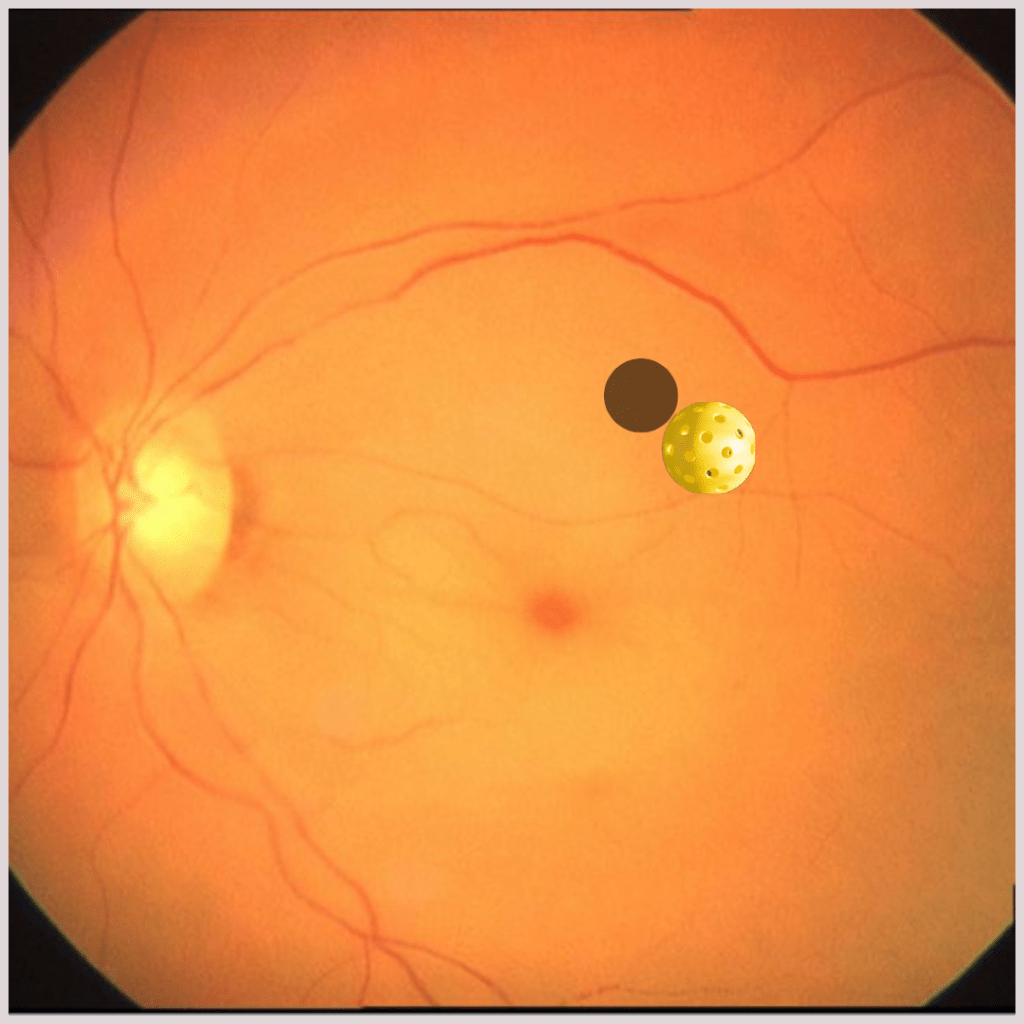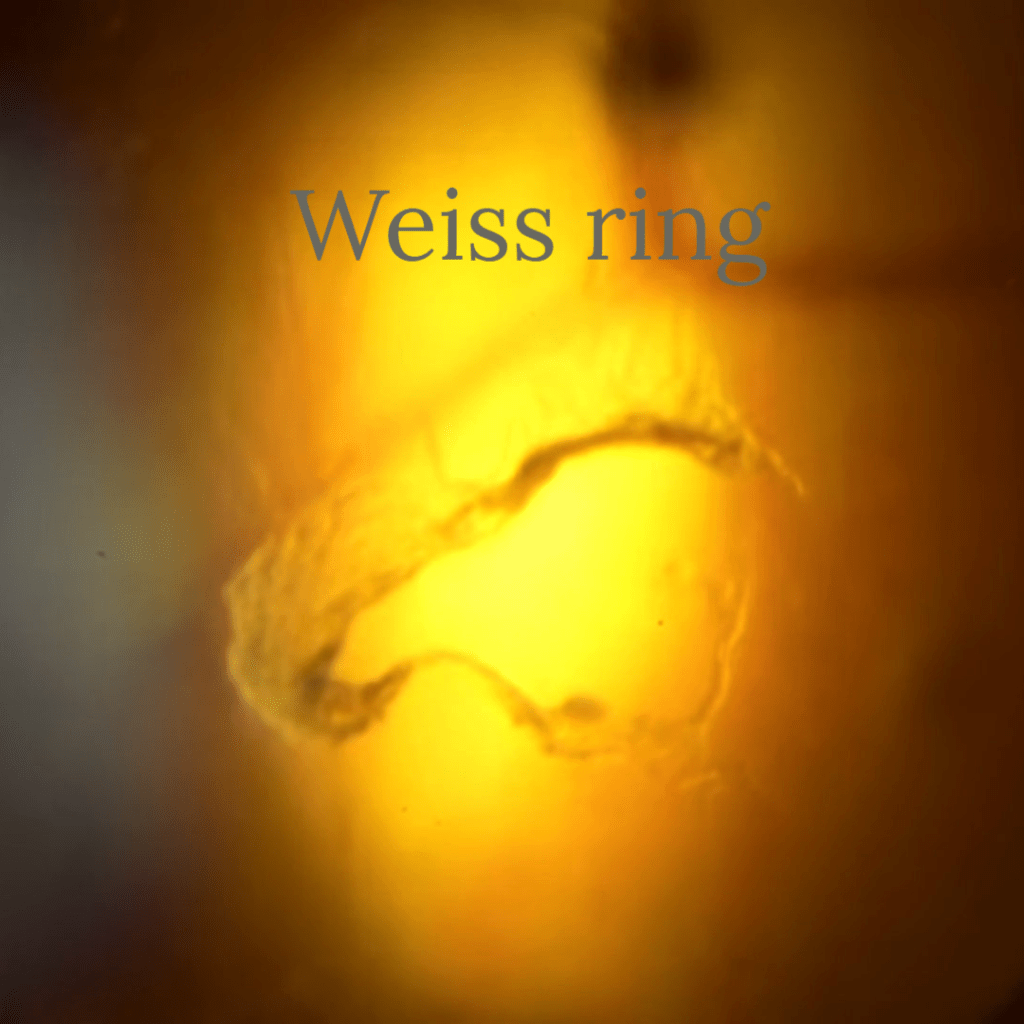1 What are eye floaters and what do they look like?
Eye floater is described in ophthalmology by the term muscae volitantes, which is Latin for “flying flies”. Like flies, floaters can be seen flying in front of our eyes as dark specks, worms, blobs, or cobwebs.
Floaters are particularly apparent against a uniform bright surface, such as a blue or gray sky, computer screen, walls, etc.
2 Are eye floaters normal?
Most of them are normal, but some can also be pathological.
Most commonly, eye floaters are a result of aging, when the jelly or vitreous inside the eye shrinks or degenerates and becomes more liquid. The result is the formation of clumps or debris in the vitreous that cast shadows on the retina. These appear as floaters. The closer the object is to the light-sensitive retina, the sharper it appears to the eyes.

And because they’re suspended within the vitreous humor, the gel-like liquid that fills the inside of the eye, floaters drift along with the eye movements,
3 What are the pathological causes of floaters?
In a minority of cases, floaters are caused by disease within the eye. This can be due to:
- Posterior uveitis. This condition is inflammation in the back of the eye due to some disease activity or infection which leads to the release of cells and debris. These are suspended in the vitreous which cast shadows on the retina leading to floaters.
- Blood cells: Vitreous hemorrhage or bleeding into the vitreous due to diabetes, hypertension, trauma or retinal vein occlusion causes the release of the blood cells in the vitreous which are seen as floaters.
- Retinal tears/detachment: Due to the shrinking of the vitreous, the retina is pulled away from its position. This is perceived as flashes of light. Sometimes, this pulling can cause retinal tears. If left untreated, liquified vitreous can seep in between the retinal layers through the hole. This causes retinal detachment and vision loss.
- Post eye surgery: such as post cataract or vitreoretinal surgery. It could be due to some medicine injected into the eye or it could be an early sign of retinal tear or detachment. Sometimes surgeons leave a bubble inside the eye which is seen as floaters. Nevertheless, its always better to inform your doctor about it.
4 Why DO eye floaters occur at young age?
Individuals who are near-sighted or have high myopia, experience floaters even in their teens and 20s. This is because in them vitreous degeneration is quite common.
5 When do eye floaters go away?
Usually, these floaters disappear in weeks to months time. Some may even take 5-6 months to go away. However, if the cause is pathological such as inflammation inside the eye or bleeding, it takes even longer.
6 When is it a cause of worry or when are floaters serious?
Floaters are typically more of an inconvenience than a concern, but sometimes they can indicate a retinal tear with or without retinal detachment. If a retinal tear is not treated on time it can lead to a more serious and sight-threatening condition which requires immediate medical attention.
Contact an eye specialist immediately if you notice:
- The sudden appearance of floaters
- Flashes of light
- A sudden increase in the number of floaters
- Seeing a “dark curtain” in the field of vision (peripherally)
- Associated blurred vision
7 Why am i seeing a large ring floating in my vision?

This ring is called Weiss ring. The vitreous is firmly attached to the optic nerve head situated at the back of the eye. When the vitreous starts to degenerate and shrink away from the back of the retina, it slowly plugs off this thick vitreous adhesion as well.
This comes off as a ring with white vitreous gel around it. The condition is called posterior vitreous detachment, which can also be associated with flashes of light.
The white ring casts shadow on the retina and is seen as a large floater.
8 How are eye floaters treated?
Surgical treatment is more aggressive because it involves taking out the vitreous and replacing it with an alternative fluid that will help preserve the shape of the eye.

Considering that the procedure has its own complications, the surgeons discourage patients from going for it for something that is more of a nuisance than anything serious.
The next option is the laser. With the help of the laser, clumps, and debris in the vitreous are disintegrated which makes them smaller and less noticeable. Over a period of time, the brain starts to ignore them completely. This procedure is still under scrutiny.
9 Can healthy eating make floater go away?
It’s always better to eat clean but it’s less likely to make floaters go away. On the contrary, there are studies that show that intermittent fasting actually has a positive effect on reducing eye floaters. This is because of the concept of autophagy during fasting.
Autophagy refers to the process in which the body rids itself of damaged cells and recycles old proteins. This helps the body to detoxify itself.
10 Is there any home treatment for floaters?
A research from Taiwan found that people who consumed pineapple every day for three months had a 70% reduction in floaters. But there isn’t concrete proof to back up this assertion.
